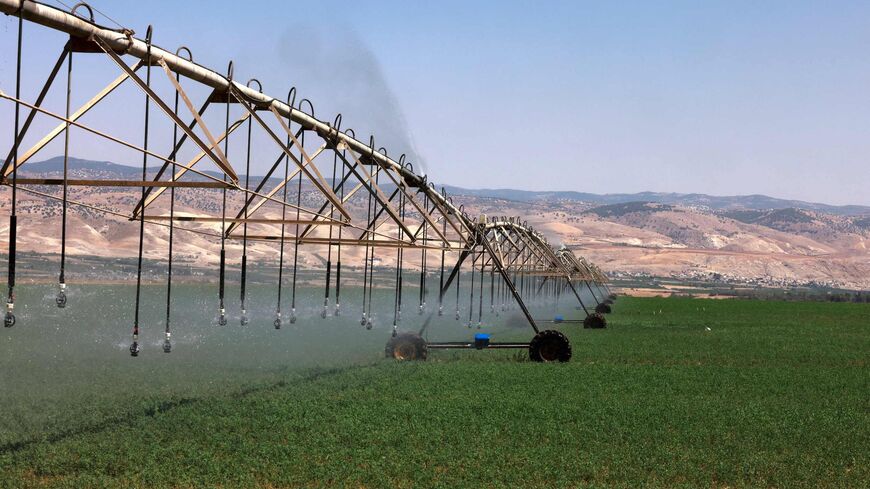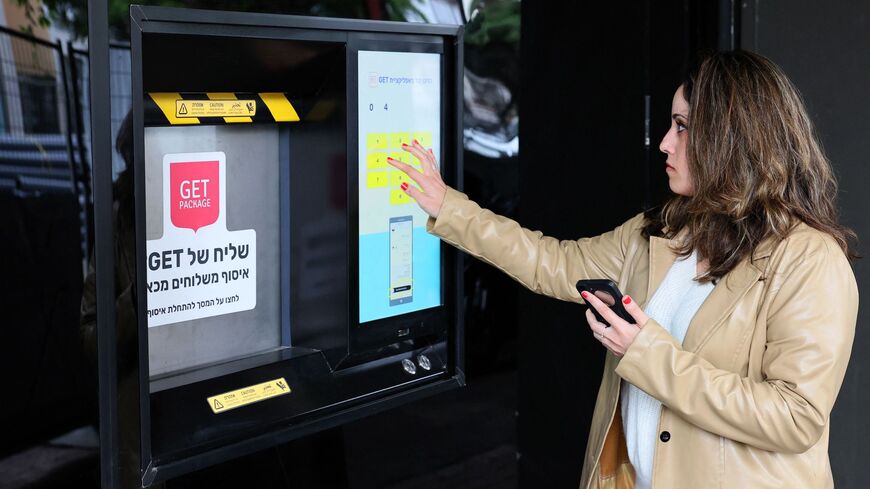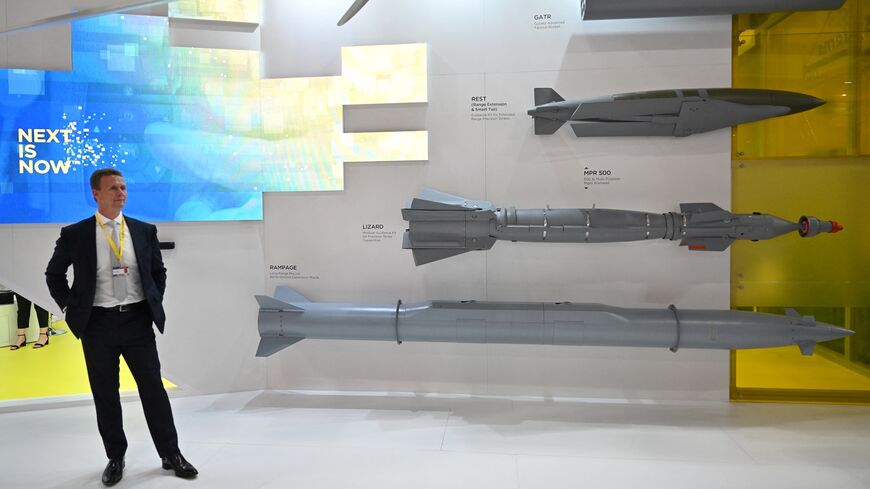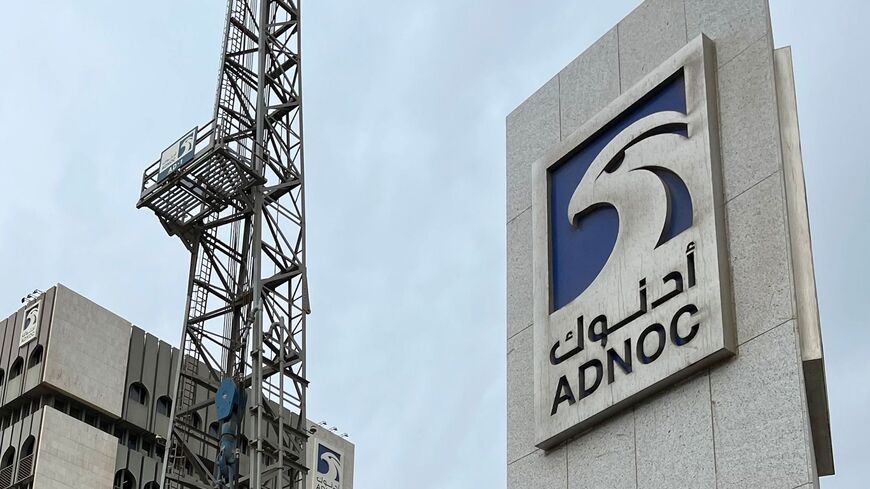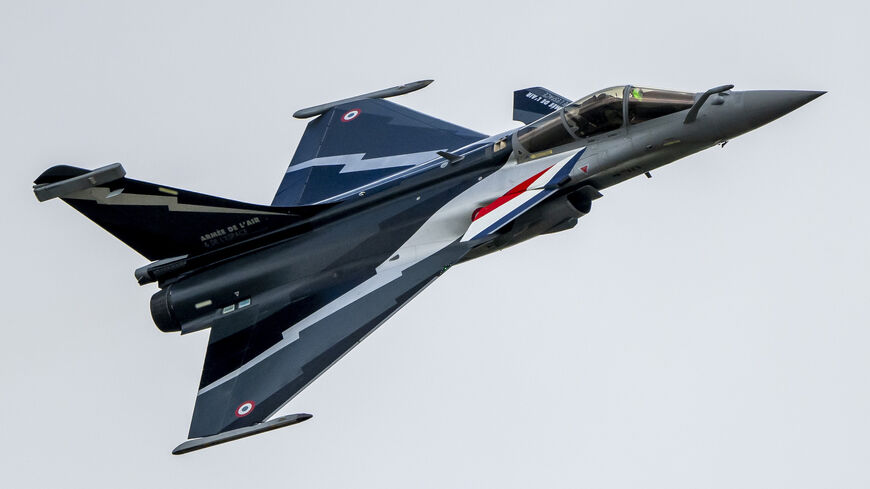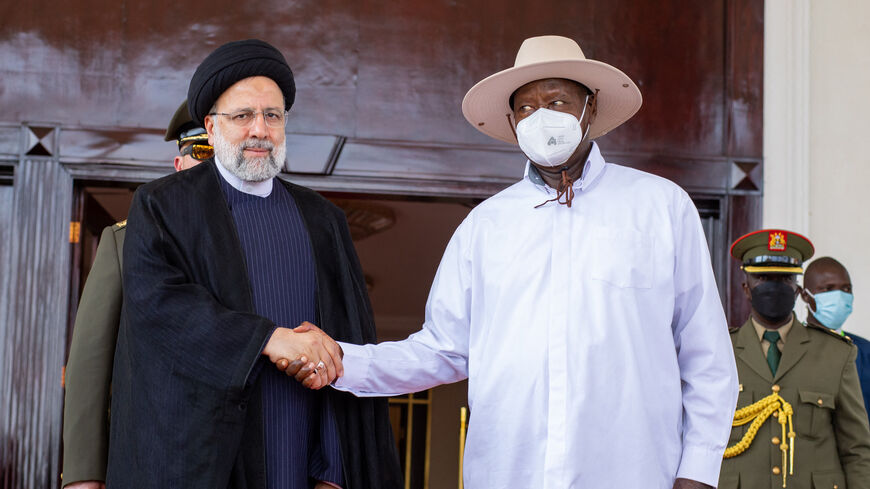Israel-Middle East trade soars, spurred by Abraham Accords and energy
Al-Monitor Pro Members
David Rosenberg
Israeli reporter specializing in business, economics and politics
May 15, 2023
Long isolated economically from the Middle East, Israel has seen a rapid expansion of merchandise trade with a select group of countries in the region, led by the United Arab Emirates, Egypt and Turkey. Cross-border investment and tourism are also on the rise, especially with the UAE. Political tensions, mainly due to Israel’s Palestinian policy, may slow growth and block some deals, and they will likely prevent Israel from expanding its existing circle of regional trade partners, most importantly Saudi Arabia. Tourism growth is especially vulnerable to political developments. But the compelling economics of regional trade and investment, especially in high technology and energy, as well as the creation of long-term business partnerships, should ensure growth in the coming years.
- Israel’s trade with the countries of the Middle East with whom it has diplomatic relations reached approximately $11.5 billion in 2022 (not counting energy trade), more than double the level in 2020, according to figures compiled by the Bank of Israel. Turkey remains Israel’s dominant trade partner, accounting for close to 70% of last year’s total, but trade with its No. 2 partner, the UAE, has grown more than 14-fold in two years to $2.56 billion. Service trade between Israel and the region is insignificant.
- Merchandise trade with the UAE has taken off in the wake of the 2020 Abraham Accords, which has also led to the rapid development of investment and tourism ties. The balance runs heavily in the UAE’s favor, but the top-line figure is misleading. While Israeli exports last year reached $622 million, $381 million of that was polished diamonds with low-added value because the stones are imported from third countries. UAE exports to Israel were nearly three times that level, but they are nearly all re-exports from third countries. The UAE’s excellent logistical facilities and transportation links have made it an increasingly attractive transit point for goods from Asia. A free trade agreement was signed in March.
- Arms deals constitute a major component of Israeli-Gulf economic ties, albeit one shrouded in mystery. No figures for Israeli arms exports in 2022 have been released, but in 2021 (the first year after the Abraham Accords went into effect), sales to Gulf countries reached about $790 million, or 7% of the total. Individual contracts have never been announced, but Israel’s Barak and Spyder air defense systems have reportedly been deployed by the UAE. Israel has not made arms deals even with the Arab countries with which it has diplomatic relations. However, Morocco reportedly signed an agreement to buy the Barak system in February 2022.
- Investment and partnerships have been a major factor in the Israel-UAE relationship. The biggest to date have been in energy, where Abu Dhabi’s Mubadala took a 22% stake in Israel’s Tamar gas field in 2021 and a partnership between BP and Abu Dhabi National Oil Co. agreed in March to take a 50% stake in Israeli energy company NewMed. However, a plan to ship oil to Europe through an Israeli pipeline fell through due to environmental objections. In defense and high tech, Israel Aerospace has teamed up with the UAE’s EDGE to develop advanced unmanned surface vessels and other tech, while G42 has partnered with Israel’s Rafael to commercialize artificial intelligence and big data for civilian applications. Last November, Israel venture capital investor OurCrowd established an AI tech hub with the Abu Dhabi Investment Office. But a $10 billion UAE fund announced in 2021 to invest in Israeli energy, tech and manufacturing has made no major investments to date.
- Closer to home, Israel began exporting natural gas to Egypt and Jordan in 2020. The Bank of Israel does not provide a dollar value of the gas, but in quantity amounts it reached 9.2 billion cubic meters in 2022, up from 4.3 BCM in 2020. The exports accounted for 45% of Israel’s total production last year. Jordan has no fossil fuel reserves of its own and has turned to Israel as the only reliable supplier in the region. While Egypt has considerable gas reserves, it is struggling to keep up with domestic demand and relies on Israel to supplement local production, with the rest re-exported as liquefied natural gas to Europe.
- Trade with Turkey remained extensive even amid strained diplomatic relations over the past decade. In the past two years, two-way trade increased 63% to $5.7 billion in 2022, in part due to a diplomatic rapprochement last year and in part to a weakening of the lira that has made Turkish exports more price competitive. In fact, much of Israeli imports from Turkey was oil produced in Iraqi Kurdistan and exported through the Turkish port of Ceyhan. This flow of oil has been stanched since February after an international arbitration panel ruled the exports violated an international treaty Turkey has with Iraq. It is unlikely the exports will resume.
- Israel had hoped to establish relations with Saudi Arabia in the wake of the Abraham Accords, but the prospects have grown dimmer in recent months. Nevertheless, Riyadh has countenanced limited business dealings, allowing a small number of Israeli business people to enter the country on special entry visas. Deals involving agro-technology and cyber security (areas that the kingdom sees as of strategic importance) have reportedly been reached, although the total value is likely to be small.
- Regional tourism has grown but only on the Israeli side. Some 1.85 million Israelis visited Middle East destinations in 2022, a 38% increase from 2019. The more traditional destinations of Turkey and Egypt (principally Sinai beaches) remain the most popular with Israelis, but travel to the UAE has grown from virtually nil to 150,000 in the final 10 months of 2022 (after COVID travel restrictions were lifted). Tourism from the region to Israel is infinitesimal, with just 17,000 arrivals from Jordan and just 1,400 from the UAE. The low number testify to continued hostile public opinion in the Arab world towards Israel.
- Regional trade still accounts for only 7.7% of Israeli imports and 4.4% of exports, thus is not critical for the country’s economy. The main benefit of commercial ties is that they help entrench political and defense relations, especially when they involve long-term partnerships, which is critical in Israel’s confrontation with Iran. That said, increased trade and tourism has not warmed Arab public opinion to Israel. In Egypt and Jordan, business dealings have to be conducted quietly, and many companies refuse to do business with Israel at all. Even in the Gulf, a poll by the Washington Institute at the end of 2022 found that just a quarter of Emiratis see the effects of the Abraham Accords as positive, down from 47% right after the agreement was signed.
Scenario 1: Continued growth with the Gulf, Egypt and Turkey
Consisting mostly of re-exports, trade with the UAE will continue to grow as more and more Israeli businesses take advantage of the bilateral FTA and the UAE's excellent logistics infrastructure. Turkish imports will also grow as well, as a devalued lira makes Turkish products more price competitive and bilateral ties continue to improve, but it is unlikely re-exports of Kurdish oil will resume. Energy trade with Egypt will continue to expand, mainly as re-exports to Europe, as pipeline capacity and Israeli natural gas production are slated to increase. Closer unofficial ties with Saudi Arabia will increase trade volumes as well, although they will not appear in official statistics without formal relations. Israeli outgoing tourism will grow more slowly and incoming tourism to Israel will remain minimal mainly due to politics, even though Jerusalem should be an attractive destination for Muslims.
Scenario 2: Trade growth stalls due to politics
Israel's hawkish government will deter regional governments from continuing to strengthen diplomatic and trade relations. The Israeli tech industry fails to recover from the global downturn due to the Israeli government's judicial overhaul, thus making it a less attractive partner for the UAE. Emirati re-exports to Israel continue growing, though at a slower pace. Energy trade with Egypt fails to take off due to Israel's failure to step up natural gas production and/or the inability to take full advantage of European demand. Saudi-Israeli ties fail to develop and trade remains limited and covert. Turkish trade should continue to grow as Ankara has consistently encouraged it even when bilateral ties with Israel were strained. However, Kurdish oil exports are cut off. Israeli tourism to the Arab world and Turkey declines due to travelers' security concerns and a less-welcoming environment.
The political environment has grown somewhat less favorable since Israeli Prime Minister Benjamin Netanyahu took office in December, as evidenced by his failure to be invited to the UAE. However, the economic case for greater trade and investment ties remains compelling for all the countries involved. In the case of the Gulf, it is access to Israeli technological innovation, for Egypt and Jordan it is access to Israeli gas, and for Turkey, which is hoping to export its way out of its economic crisis, Israel is an important market. For its part, Israel has an abiding interest in cultivating commercial ties, even if they remain a small part of its total trade and investment flows. Relations with Saudi Arabia’s $1 trillion economy (by far the biggest in the region) combined with its appetite for technology and defense products, presents enormous growth potential, but despite recent efforts by the Biden White House to normalize relations, the goal remains elusive. Israeli-Saudi business will expand but remain covert and limited.
David Rosenberg has more than 30 years experience reporting, commenting and speaking on business, economics and politics in Israel and the Middle East. He has worked for Reuters, The Jerusalem Post and Dow Jones, and was bureau chief for Israel for Bloomberg News. He is the author of two books (Cloning Silicon Valley, 2001, and Israel’s Technology Economy, 2018) and has been published in The Wall Street Journal and Foreign Policy. He now writes commentary for the Haaretz daily.
We're glad you're interested in this memo.
Memos are one of several features available only to PRO Expert members. Become a member to read the full memos and get access to all exclusive PRO content.

Already a Member? Sign in
The Middle East's Best Newsletters
Join over 50,000 readers who access our journalists dedicated newsletters, covering the top political, security, business and tech issues across the region each week.
Delivered straight to your inbox.
Free
What's included:
Free newsletters available:
- The Takeaway & Week in Review
- Middle East Minute (AM)
- Daily Briefing (PM)
- Business & Tech Briefing
- Security Briefing
- Gulf Briefing
- Israel Briefing
- Palestine Briefing
- Turkey Briefing
- Iraq Briefing
Premium Membership
Join the Middle East's most notable experts for premium memos, trend reports, live video Q&A, and intimate in-person events, each detailing exclusive insights on business and geopolitical trends shaping the region.
$25.00 / month
billed annually
$31.00 / month
billed monthly
What's included:
Memos - premium analytical writing: actionable insights on markets and geopolitics.
Live Video Q&A - Hear from our top journalists and regional experts.
Special Events - Intimate in-person events with business & political VIPs.
Trend Reports - Deep dive analysis on market updates.
We also offer team plans. Please send an email to pro.support@al-monitor.com and we'll onboard your team.
Already a Member? Sign in


